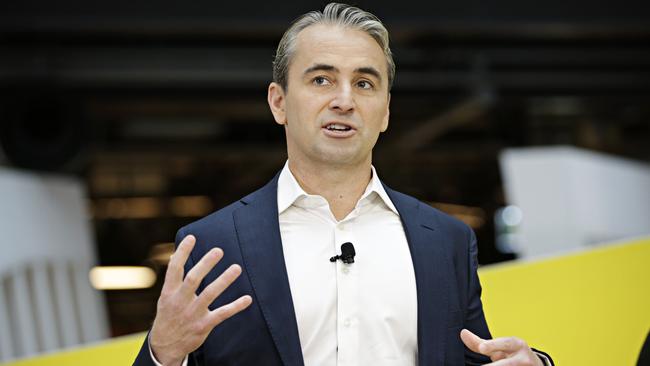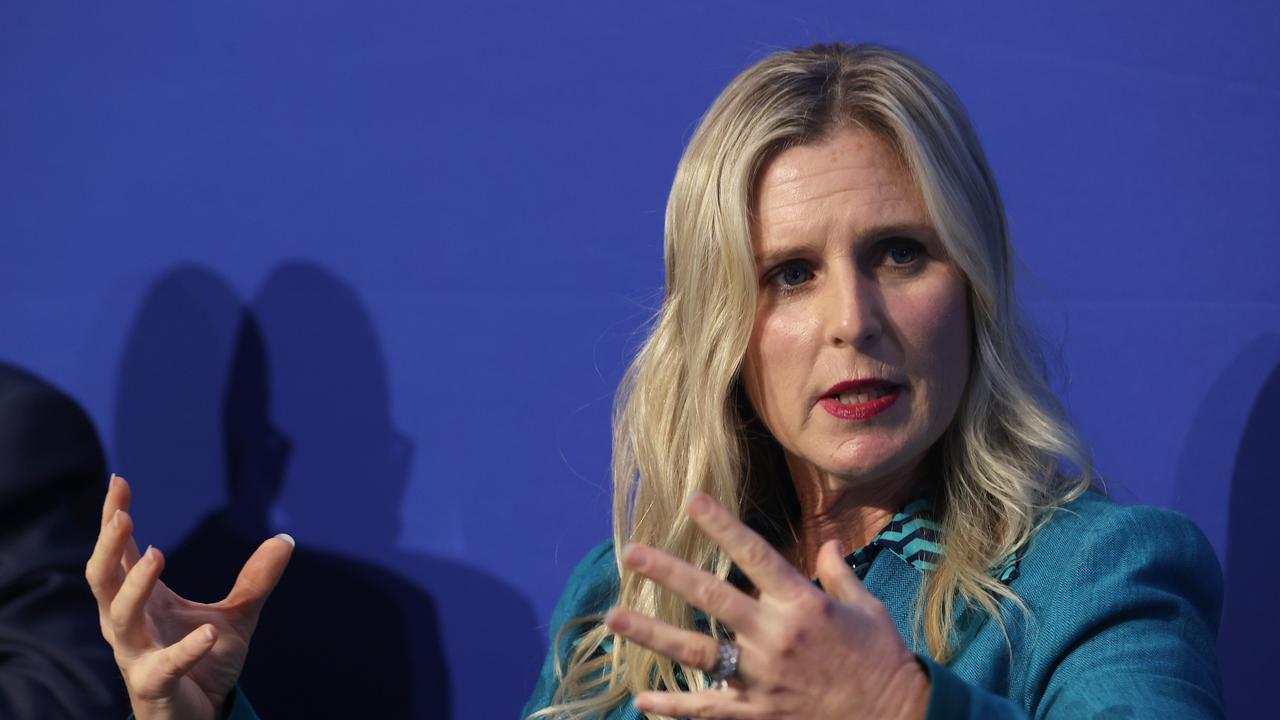Commonwealth Bank to use tech to lock in Gen Z and Millenial customers

Commonwealth Bank will deploy its acknowledged digital leadership to attract the next generation of bank customers, including those from the elusive Gen Z and millennial demographics.
Chief executive Matt Comyn is expected to tell an investor and media briefing on Thursday that the banking industry has no choice but to engage with these current and future customers according to their individual needs and desires.
In bank-talk, the challenge is to target more than 7.5m digitally active customers through CBA’s customer engagement engine to deliver highly personalised “for you” experiences, tailored by data analytics and artificial intelligence.
Translated to English, a plain vanilla mortgage doesn’t cut it any more, so expect a stack of services and rebates typically associated with the global tech giants and brands, such as Amazon, Apple and Google.
The objective is to make these flighty customers more “sticky”, using inducements like buy now, pay later which is delivered through CBA’s partnership with Klarna.
Earlier this year, CBA also unveiled an app called Benefits finder to help customers access 270 benefits and refunds offered by federal and state governments.
Since launch, there have been almost 3m unique visits to Bf, as it’s known, leading to $500m of accessed benefits.
A further example was the launch of the Neo no-interest credit card, which now makes up more than 30 per cent of the bank’s card applications.
The card has no late or foreign exchange fees and a choice of credit-limit of up to $3000, so it’s designed for younger people.
Comyn is likely to unveil a few equity investments in industry disrupters, more so than fintech companies, to lock in these services for CBA customers.
Activists target NAB
As global capital enforces the net-zero emissions imperative, and transparency means there are fewer places to hide, scrutiny of the banks is intensifying, not just by climate activists but by global investors, as well.
The latest development on the activist front concerns the environmental movement Extinction Rebellion, which has the stated aim of using non-violent civil disobedience so governments take action to avoid climate-change tipping points.
ER, as it’s known by the banks which keep a handle on its activities, is currently using social media to rally supporters for a major-cities campaign against National Australia Bank on Friday.
The aim is to “expose NAB’s attempts to hide enormous investments in new fossil fuel projects”.
NAB, of course, denies this – apart from anything else, it’s almost impossible for the industry to “hide” large-scale commercial activity, especially when it’s linked to fossil fuels.
ER, nevertheless, is targeting NAB for making small-scale green investments in the tens of millions of dollars to distract attention from a bigger picture – the bank’s funding in 2020 of nearly $4bn in new oil and gas projects around the world.
“All 4 big banks are doing this, as well as many companies,” the group says on its Facebook page.
“This is an attempt to appear to be doing the right thing, all the while their investment profile is undermining any true attempts to address climate change.”
The allegation against NAB is “greenwashing”.
In many cases, the banking industry’s response is that it’s helping its top-emitting customers to decarbonise and make the transition to carbon neutrality.
The word transition understates the massive scale of the challenge, which was highlighted by the 7 per cent reduction in global carbon emissions last year because of Covid-19.
This was in no small part due to a two-thirds slump in air travel and a halving in road miles, according to the International Energy Agency.
While it doesn’t sound that much, it was the biggest reversal in emissions in more than a century.
Bank of England executive director of markets Andrew Hauser said this week it was only a sign of things to come, because emissions needed to fall by a similar amount every single year for the next decade if the planet is to avoid the “disastrous consequences of global warming”.
“That won’t happen easily – or on its own,” Hauser said.
“It turns out that the only previous material reductions in global emissions have been by-products of disasters like Covid, the financial crisis of 2008-9, World War II, or the Great Depression.
“But relying on future disasters to force adjustment is not a plan.
“Orderly transition requires concerted efforts across every sector and country in the global economy – start late, and the best case is severe economic disruption, at least as bad as in 2008-9, or leave it completely and temperatures will soar, causing untold physical, human and economic damage.”
Hauser said some people felt central banks were straying into territory reserved for government policy, while others believed their approach was too timid.
The truth was that governments were responsible for policy but much of the emissions reduction had to come from the corporate sector, which required an enormous amount of investment.
Financing of the investment program would fall to banks and investors in companies’ equity and debt.
The scale of the task would be challenging even if the path to net zero were clear.
But according to Hauser, there was no certainty, and investors had to also factor in losses from stranded assets.
This grim reality made them increasingly insistent that fund managers take more forceful action to support the transition to net zero, with corporate deniers or agnostics getting the cold shoulder.
gluyasr@theaustralian.com.au
Twitter: @Gluyasr


